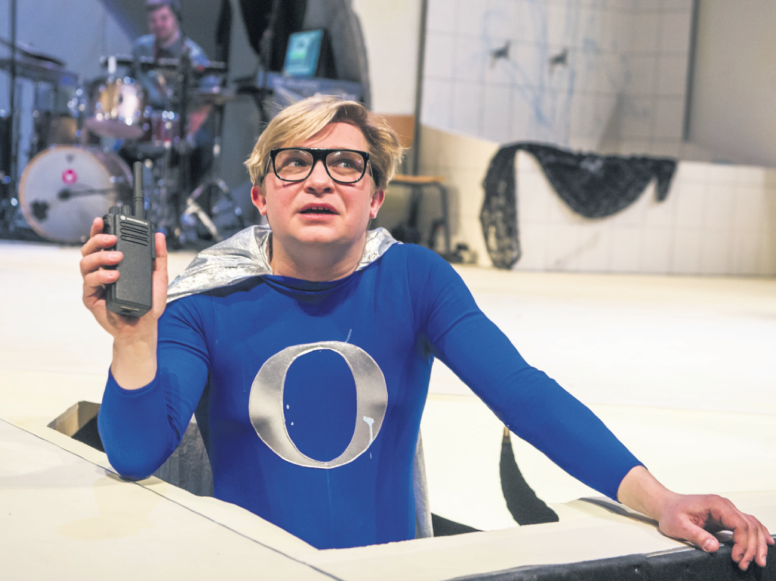This wildly reimagined A Midsummer Night’s Dream is riotously fun

Hammersmith Lyric | ★★★★☆
There are few things more tragic than Shakespeare’s comedies. The plots are silly, the pacing is woeful, and what jokes there are are usually buried in such antiquated language and stale cultural references that you need a degree in early modern literature to have a chance of properly appreciating them. But Filter Theatre’s revival of its 2012 production of A Midsummer Night’s Dream, is fearless in its treatment of the text. Cutting through all the unnecessary nonsense to find its magical, nonsensical core and piling on slapstick, it presents the audience with that rarest of theatrical accomplishments: a Shakespearean comedy that’s genuinely funny.
It begins with a warm-up act of sorts, as Peter Quince (Ed Gaughan), chief of the play’s group of “Mechanicals”, steps out in front of the curtain only to be distracted by current events and his own stream of consciousness. The pared-down group – originally six in number – are represented here as an experimental Jazz trio who sample and loop sound effects live on stage. They are joined by a surprise artist in the role of Bottom, and hilarity and knob-jokes ensue.
The central plot of fairies toying with a quartet of young lovers from Athens still plays out in a forest, though the set is sparse and post-industrial. The fairy queen, Titania, is glamorously attired in black lace, but her husband Oberon, in comic book-inspired cape and tights, looks like the lovechild of Austin Powers and Super Grover.
All of the actors throw themselves into their parts and with Puck’s intervention – dousing various characters with love potion – their energy spills over and palpably charges the audience. The mayhem culminates in a literal bunfight (this also spills into the audience, so if you’re planning to attend, skip the pre-theatre menu, and if you’re in the front row, wear a poncho).
More often than not the play’s uneven tone is an advantage; it cares little for distinctions between high and low culture, and smashes through the fourth wall (and second and third walls, floor and ceiling) with postmodern elan. However, perhaps not surprisingly given the (once again literal) throw-everything-at-the-wall-and-see-what-sticks approach, some jokes fall a little flat, and it’s unfortunate that the generally high quality and rapid-fire delivery makes the lulls seem longer and more pronounced than they really are.
Traditionalists may be offended, but this is truer to the spirit of the original than any other production I’ve seen. Filter Theatre’s production is an effective counterargument for anyone who worries Shakespeare might not be for them. It’s a loud, frenetic, shambolic, foul-mouthed, irreverent, ridiculous mess, and that’s what makes it such fun.
